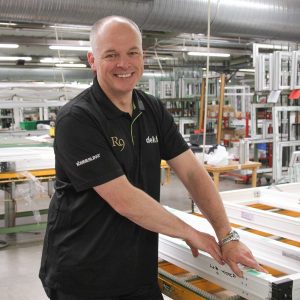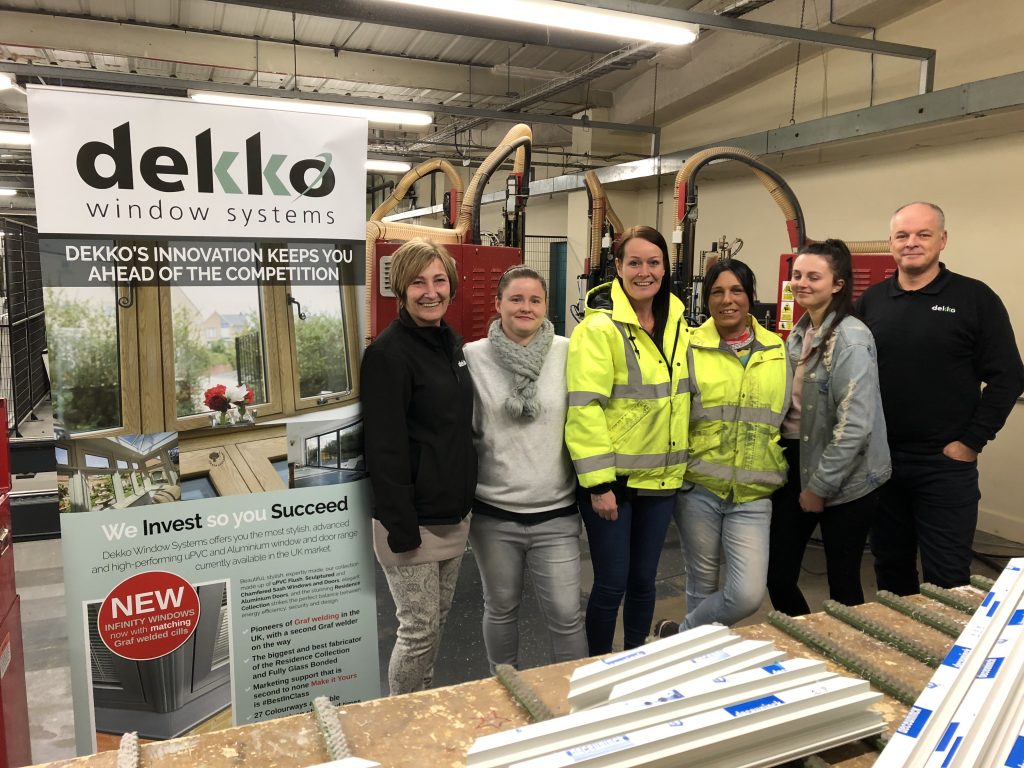Mind the gap
November 10, 2021
As an ageing workforce retires, the industry’s skill gap is set to widen. Dekko Window Systems Sales Director Kurt Greatrex believes that with hard work and the right investments, we’ll rise to the challenge…

The UK construction industry is a huge part of the national economy, generating over £110 billion a year and accounting for around 7% of the country’s GDP.
But it’s long been known that the industry is experiencing an acute skills shortage that remains one of the biggest problems the sector has had to tackle.
Today, thanks to a boom in demand as a result of the Covid-19 pandemic, the industry’s workforce has been stretched like never before, further highlighting the gap.
Even when the days of the pandemic are finally over and we’re all back to a new normal, one thing won’t have changed – a growing gap in the market of skilled workers.
Contributing factors
The biggest reason for the shortage is an ageing workforce. According to the Office for National Statistics, over 20% of UK tradespeople are aged over 50, while 15% are in their 60s.
The problem is, as this generation starts to retire, the same percentage of younger people aren’t entering these professions.
In fact, a YouGov survey shows that just 3% of people aged 18 to 24 are searching for jobs in the construction industry.
School leavers are generally pursuing university degrees in the hopes of lucrative careers, often forgetting that you can actually earn quite a good living in construction and fenestration.
Brexit is another big reason behind the growing industry skills gap.
According to the Labour Force Survey, 8.2% of the UK construction workforce are EU nationals, many of whom have returned home following the UK’s departure.
There are also many workers who returned home during the height of the pandemic, and have not since been able to return due to new stringent immigration laws.
Figures from the Construction Industry Training Board show that in order to make up for this, the UK construction industry will have to recruit an additional 250,000 workers in the next four years.
And while it of course remains possible to recruit people from overseas, new immigration rules make it a hassle many businesses simply don’t want to have to contend with.
So, what’s the solution?
One of the main solutions to overcoming the skills gap is to invest in training.
Companies can start doing this by visiting schools in their local area and getting children excited about a career in the industry.
When it comes time for these young people to graduate, they’ve then got a solid understanding of what a career in construction means, and may even choose this path over three years at university.
The next stage then would be to offer apprenticeships, encouraging school leavers to learn on the job while earning a living.
At Dekko, we’ve recruited four apprentices in different roles – HR, manufacturing and engineering. We’ve also taken on a marketing apprentice who will help us track leads and find opportunities to turn these into regular business.
By taking them on, we’re upskilling young workers and giving them an opportunity to learn on the job, with the long-term goal of developing a skilled and qualified workforce that will contribute to filling the industry’s skills gap.
Women in construction

We’ve also been working to fill the skills gap by diversifying our workforce and recruiting more female workers.
According to the Chartered Institute of Building, only around 10% of the UK’s construction workforce is female, and with the skills gap what it is, this needs to change.
A diverse workforce allows the best talent to rise to the top, regardless of gender, and at Dekko, two of our six strong senior management team are female, while we also employ several women as part of our manufacturing workforce.
With fewer people coming into the industry with the necessary skills to keep it growing, one of the biggest challenges we face to keep the industry driving forward is a skills shortage.
Attracting the younger generation to the industry is vitally important, and so is growing a female workforce, two things we at Dekko are determined to achieve in the coming years.
The skills gap is of course a very daunting prospect, but I believe that by working together, planning ahead and investing in the right places, we as an industry will overcome it and come back bigger and stronger than ever before.










Nationwide delivery in the UK
From our state-of-the-art factory in Lancashire, our products are transported to installers across the UK. We strive to meet all delivery deadlines to ensure our customers are never delayed. They stock an extensive range of PVCu and ancillary products to give installers easy and convenient access to all the necessary hardware.
Contact Us
